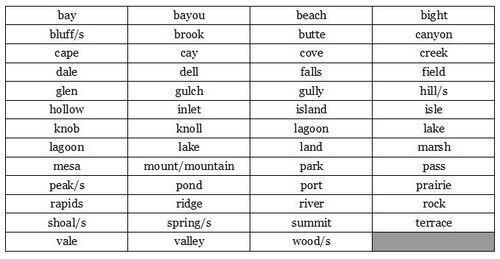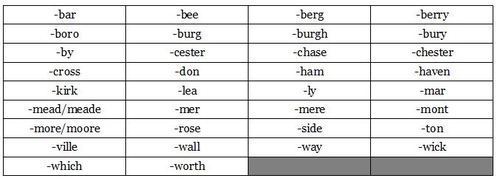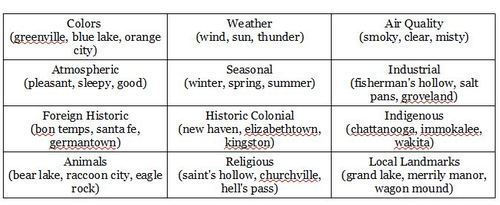How Your Characters Might Flirt Using Food (Because Food = Love)
How Your Characters Might Flirt Using Food (Because Food = Love)
Because sometimes “I love you” sounds like “did you eat?”
“I saved the last piece for you.” → Literal affection disguised as generosity.
“This isn’t as good as the one you like, but it’s close.” → Translation: I pay attention.
“Try this. No, just—trust me.” → Feeding them is flirting. End of story.
“I remembered you don’t like onions, so I left them out.” → That’s a love letter.
“I burned it. You’re eating it anyway.” → Domestic chaos = love language unlocked.
“You always steal bites, so I got you your own.” → He saw, he adapted. Soulmate.
“You’re not allowed to fall in love with anyone who cooks better than me.” → Petty? Maybe. Adorable? Absolutely.
More Posts from Sparklingsilvermagnolias and Others
GUIDE: NAMING A TOWN OR CITY
This post was originally from a FAQ, but since the original link is now defunct, I am re-posting it here.
There are many things to keep in mind when naming the town or city in your novel:
1) Genre/Theme/Tone
It’s very important to consider the genre and theme of your story when choosing a town name. Take these names for example, each of which indicates the genre or theme of the story: King’s Landing (sounds fantastical) Cloud City (sounds futuristic) Silent Hill (sounds scary) Sweet Valley (sounds happy and upbeat) Bikini Bottom (sounds funny) Radiator Springs (sounds car-related) Halloween Town (sounds Halloween-related) Storybrooke (sounds fairytale-related) 2) Time/Place It’s also important to consider the time and place where your story takes place. For example, you wouldn’t use “Vista Gulch” as a name for a town in Victorian England. You probably wouldn’t use it for a town in modern day North Carolina, either. Vista is a Spanish word and would normally be found in places where Spanish names are common, like Spain, Central and South America, the southwest United States (including southern California), Cuba, Puerto Rico, Dominican Republic, and Florida. 3) Size/Settlement Type An isolated town of 300 people probably won’t be Valley City, but a sprawling metropolis of 30 million could be called Windyville, because it could have started out as a small town and grew into a large city. 4) Geography Words like gulch, butte,and bayou tend to be regional terms. You probably wouldn’t find Berle’s Bayou in Idaho, or Windy Butte in Rhode Island. Words like mount, cape, and valley are dependent upon terrain. Most of the time, you won’t have a town named “mount” something unless there are hills or mountains nearby. You wouldn’t use “cape” unless the town was on a cape, which requires a large body of water. 5) History Is there a historical person or event that your town might be named after? The Simpsons’ hometown of Springfield is ironically named after its founder, Jebediah Springfield. Chattanooga, Tennessee is named after the Cherokee town that was there first. Nargothrond, in The Lord of the Rings, is an Elvish town with an Elvish name. 6) Combination of Words
person name + geographical term = Smithfield, Smith Creek
group name + geographical term = Pioneer Valley, Settlers’ Ridge
descriptive word + geographical term = Mystic Falls, Smoky Hill
person name + settlement type = Smithton, Claraville
landmark + settlement type = Bridgton, Beaconville
Word Lists
Types of Settlements

Geographical Features

Place Words

Common Suffixes

Other Descriptors

List of 40 character flaws
Stubbornness, Unyielding in one's own views, even when wrong.
Impatience, Difficulty waiting for long-term results.
Self-doubt, Constant uncertainty despite evident abilities.
Quick temper, Excessive reactions to provocations.
Selfishness, Prioritizing one's own needs over others'.
Arrogance, Overestimating one's own abilities.
Trust issues, Difficulty trusting others.
Perfectionism, Setting unreachable high standards.
Fear of change, Avoiding changes.
Haunted by the past, Old mistakes or traumas influencing the present.
Jealousy, Envious of others' successes.
Laziness, Hesitant to exert effort.
Vindictiveness, Strong desire for revenge.
Prejudice, Unfair biases against others.
Shyness, Excessive timidity.
Indecisiveness, Difficulty making decisions.
Vulnerability, Overly sensitive to criticism.
Greed, Strong desire for more (money, power, etc.).
Dishonesty, Tendency to distort the truth.
Recklessness, Ignoring the consequences of one's actions.
Cynicism, Negative attitude and distrust.
Cowardice, Lack of courage in critical moments.
Hotheadedness, Quick, often thoughtless reactions.
Contentiousness, Tendency to provoke conflicts.
Forgetfulness, Difficulty remembering important details.
Kleptomania, Compulsion to steal things.
Hypochondria, Excessive concern about one's health.
Pessimism, Expecting the worst in every situation.
Narcissism, Excessive self-love.
Control freak, Inability to let go or trust others.
Tactlessness, Inability to address sensitive topics sensitively.
Hopelessness, Feeling that nothing will get better.
Dogmatism, Rigidity in one's own beliefs.
Unreliability, Inability to keep promises.
Closed-offness, Difficulty expressing emotions.
Impulsiveness, Acting without thinking.
Wounded pride, Overly sensitive to criticism of oneself.
Isolation, Tendency to withdraw from others.
Do you have any tips for how to slow down time in a story?
How to slow down time
To slow down time in your story you need to use a mix of different writing ingredients: you need different descriptions that capture the reader in the moment as well as internal monologue and different sentence structures.
Detailed Descriptions:
Sensory Details: Use the five senses—sight, sound, smell, taste, and touch to describe what the character is seeing, hearing, feeling, smelling, and tasting in intricate detail.
Detailed Observations: Zoom in on small, often overlooked details. The sound a tea cup makes as it hits the ground, the way an expression on a character's face changes, the turning of heads as someone enters the room.
Slow Motion: Manipulate the time by describing how it feels like slow motion to the characters: "Time slowed down, and it felt as if the whole of humanity had decided to stop breathing for a moment."
Physical Reactions: A detailed description of the physical aspects of a scene. The movements a character makes, how their gaze turns, their breathing changes, their body begins to shake.
Psychological Aspects: Focus on the anxiety of a character looking at a clock that never seems to move, their nervousness seeping out of them
Internal Monologue:
Memories and Flashbacks: Add context by showing memories or flashbacks that relate to the situation.
Pondering: Let the character reflect on the situation, their feelings and their plan for the next steps. Let the reader explore the character's inner life.
Dialogue:
Reduced Dialogue: Dialogue brings a scene into real time. Use it thoughtfully and sparringly, with lots of inner thoughts and reactions in between.
Silence: Make use of silence between the characters which can be filled with more descriptions.
Language:
Smaller Steps: Write out each action taken, no matter how small, and focus on describing each step that happens.
Control Pacing: Use your sentence structure to create long descriptions that slow it down, and short, impactful ones to pick up the pace if needed for a moment.
More: Masterpost: How to write a story
- Jana
i am increasingly convinced that the wedding industry is having a statistically significant impact on young women leaving the mormon church. has anyone looked into this?
Random Stuff for Your Story
I have bookmarks saved for random, different, interesting topics that don’t really fit into any single category, so I decided to just put them all together in one list.

A list of resources on miscellaneous topics to help make your stories more interesting.
Writing Accurate Heist Scenes A tumblr thread that discusses accurate heist scenes for heist movies, and what it’s like to work as a security guard.
Friends, Not Love Interests Helpful advice for anyone who is writing two characters as friends (particularly when one is female and the other is male), in order to help minimize the chance of readers wanting them to fall in love.
The Writer’s Guide to Distinguishing Marks on Characters A basic guide on different types of distinguishing marks for characters, such as freckles, birthmarks, scars, and tattoos.
Don’t Use Specific Numbers in Your Story A tumblr thread that explains if your story doesn’t need a specific number for something (whether a date, age, span of time, etc.), then you don’t need to use a number. Includes helpful examples.
Pet Peeves in TV Shows and Movies A tumblr thread with different lists of things that people find annoying in TV shows and movies. Many of these things can also apply to situations in stories.
Types of Paperwork That Characters Could Do A tumblr thread that discusses how fanfiction writers often give their characters “large amounts of paperwork they hate doing,” but don’t describe the type of paperwork. Provides a list of different types of paperwork that characters could be working on.
In Time Travel Movies, When the Time Traveler Asks... A tumblr thread that discusses more realistic responses for when a time traveler asks what year it is or where they are, instead of people automatically thinking they are weird or crazy for asking.
Reasons for a Character’s Death Explains the reasons why you might kill off a character, and offers advice on how to make a character’s death meaningful.
Dialogue Responses to “I Thought You Were Dead!” A list of different responses that a character could give when someone else says, “I thought you were dead.”
+
I’m a writer, poet, and editor. I share writing resources that I’ve collected over the years and found helpful for my own writing. If you like my blog, follow me for more resources! ♡
Questions to Ask Yourself About Your Character
What is their relationship with their parents?
What is their favorite meal?
How do they identify?
What's their style?
Are they proud of themselves?
Are they patient or impatient?
Do they have siblings, and what's their relationship with them?
What are their standards?
Have they ever been in love?
When was the last time they felt loved?
Have they gotten their heart broken?
Do they know who they are?
What are their preferences?
What do they want?
What are their goals?
What would they do if they failed?
What would they save in a fire?
What's one childhood item they still love?
-
 alllthisbadblood liked this · 2 weeks ago
alllthisbadblood liked this · 2 weeks ago -
 jakelope13 liked this · 2 weeks ago
jakelope13 liked this · 2 weeks ago -
 invisiboom12 liked this · 2 weeks ago
invisiboom12 liked this · 2 weeks ago -
 justonemorewallflower liked this · 2 weeks ago
justonemorewallflower liked this · 2 weeks ago -
 unmichipecao liked this · 2 weeks ago
unmichipecao liked this · 2 weeks ago -
 lilyswrittenworks liked this · 2 weeks ago
lilyswrittenworks liked this · 2 weeks ago -
 wreckastowx3 reblogged this · 2 weeks ago
wreckastowx3 reblogged this · 2 weeks ago -
 ayxruas liked this · 2 weeks ago
ayxruas liked this · 2 weeks ago -
 090909yh liked this · 2 weeks ago
090909yh liked this · 2 weeks ago -
 nostalgia-detective liked this · 2 weeks ago
nostalgia-detective liked this · 2 weeks ago -
 macheriegrove liked this · 2 weeks ago
macheriegrove liked this · 2 weeks ago -
 mediocre-artist liked this · 2 weeks ago
mediocre-artist liked this · 2 weeks ago -
 khaoticemerald liked this · 2 weeks ago
khaoticemerald liked this · 2 weeks ago -
 mother-canuckin-geek liked this · 2 weeks ago
mother-canuckin-geek liked this · 2 weeks ago -
 gorebrain liked this · 2 weeks ago
gorebrain liked this · 2 weeks ago -
 saintcxrsed liked this · 2 weeks ago
saintcxrsed liked this · 2 weeks ago -
 walkingcanvas13484 reblogged this · 2 weeks ago
walkingcanvas13484 reblogged this · 2 weeks ago -
 walkingcanvas13484 liked this · 2 weeks ago
walkingcanvas13484 liked this · 2 weeks ago -
 honeypine-the-parrot liked this · 2 weeks ago
honeypine-the-parrot liked this · 2 weeks ago -
 delia4321 liked this · 2 weeks ago
delia4321 liked this · 2 weeks ago -
 gurlhwy reblogged this · 2 weeks ago
gurlhwy reblogged this · 2 weeks ago -
 gurlhwy liked this · 2 weeks ago
gurlhwy liked this · 2 weeks ago -
 xxgreendruidessxx liked this · 2 weeks ago
xxgreendruidessxx liked this · 2 weeks ago -
 bookandyarndragon reblogged this · 2 weeks ago
bookandyarndragon reblogged this · 2 weeks ago -
 bookandyarndragon liked this · 2 weeks ago
bookandyarndragon liked this · 2 weeks ago -
 gay-frog-search-history reblogged this · 2 weeks ago
gay-frog-search-history reblogged this · 2 weeks ago -
 gay-frog-search-history liked this · 2 weeks ago
gay-frog-search-history liked this · 2 weeks ago -
 shubox liked this · 2 weeks ago
shubox liked this · 2 weeks ago -
 the-anonymous-unikitty liked this · 2 weeks ago
the-anonymous-unikitty liked this · 2 weeks ago -
 lutchdanverdinde liked this · 2 weeks ago
lutchdanverdinde liked this · 2 weeks ago -
 lilithpaperheart liked this · 2 weeks ago
lilithpaperheart liked this · 2 weeks ago -
 deviantsolosoulmate reblogged this · 2 weeks ago
deviantsolosoulmate reblogged this · 2 weeks ago -
 xxtheferalfairyxx liked this · 2 weeks ago
xxtheferalfairyxx liked this · 2 weeks ago -
 smolciestar liked this · 2 weeks ago
smolciestar liked this · 2 weeks ago -
 smebubble liked this · 2 weeks ago
smebubble liked this · 2 weeks ago -
 elexraven liked this · 2 weeks ago
elexraven liked this · 2 weeks ago -
 ts714 liked this · 2 weeks ago
ts714 liked this · 2 weeks ago -
 leondoodlezart liked this · 2 weeks ago
leondoodlezart liked this · 2 weeks ago -
 pinkieghost liked this · 2 weeks ago
pinkieghost liked this · 2 weeks ago -
 theoriginalfandomrunner liked this · 2 weeks ago
theoriginalfandomrunner liked this · 2 weeks ago -
 fatherisaac liked this · 2 weeks ago
fatherisaac liked this · 2 weeks ago -
 theshipperqueenisnotdone liked this · 2 weeks ago
theshipperqueenisnotdone liked this · 2 weeks ago -
 corallove liked this · 2 weeks ago
corallove liked this · 2 weeks ago -
 loveleffie liked this · 2 weeks ago
loveleffie liked this · 2 weeks ago -
 jcmaiscute liked this · 2 weeks ago
jcmaiscute liked this · 2 weeks ago -
 jcmaiscute reblogged this · 2 weeks ago
jcmaiscute reblogged this · 2 weeks ago -
 glowydiaries liked this · 2 weeks ago
glowydiaries liked this · 2 weeks ago -
 wisteria-voice liked this · 2 weeks ago
wisteria-voice liked this · 2 weeks ago

119 posts

















